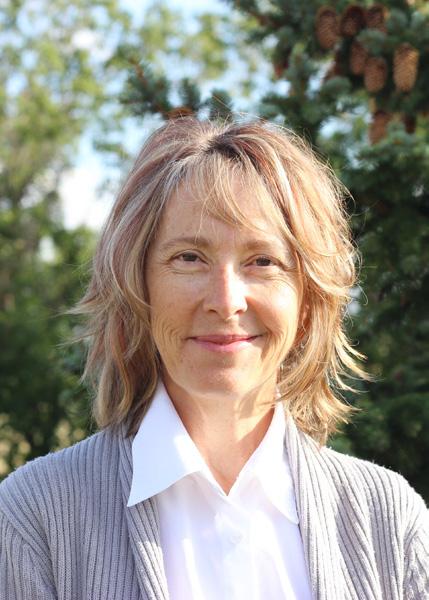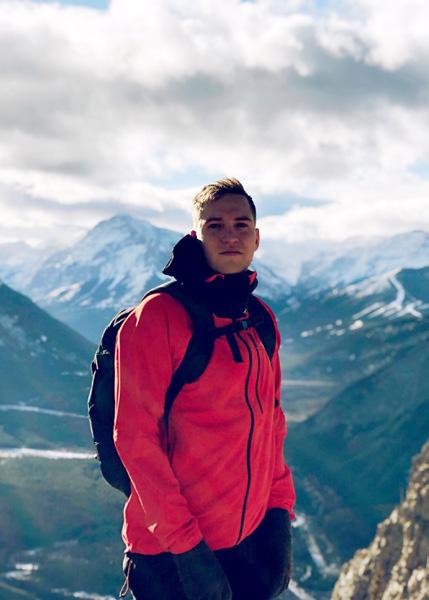
5 minute read
Saskatchewan doctors walking the talk in the fight against climate change
By Greg Basky
Evidence of the health impacts of climate change is everywhere: Eco-anxiety is giving rise to new mental health support groups. Smoke from wildfires is causing more problems for people with asthma and allergies. Incidence of bug-borne illnesses such as Lyme disease is on the rise. Dehydration and deaths from summer heatwaves are becoming the new norm.
Canada’s health-care community is united in recognizing the threat global warming poses to the health of citizens. In February 2019, the Canadian Medical Association (CMA) joined a host of other professional groups – including the Canadian Nurses Association (CNA) and the Canadian Public Health Association (CPHA) – in calling on all federal parties to recognize that “climate change is the greatest public health challenge of the 21st century.”
For individuals, it’s hard to know where to start when the real power for change rests with governments around the world. But Saskatchewan doctors – and medical students too – are finding ways to be part of the fight.
Dr. Anne Davis, a family physician in Eastend, traces her passion for the environment back to her university days:
The spark was fueled by what she was learning in ecology classes, and reading in environmental classics such as Silent Spring (by Rachel Carson, first published in 1962) and Diet for a Small Planet (by Frances Moore Lappé, published in 1971). “That interest and concern has stayed with me.”

Dr. Anne Davis, family physician, Eastend
Dr. Davis recently decided that talking to individuals, writing letters and signing petitions isn’t “anywhere near enough.” So she’s upping her game: Dr. Davis is making more conscious decisions about the medical supplies she uses in her practice. She’s talking to her patients about healthy lifestyle choices that benefit the individual but also the planet – such as eating plant-based foods more often and walking instead of driving. And she’s becoming more active in the work of the Canadian Association of Physicians for the Environment (CAPE), an advocacy group whose mission is to better human health by protecting the planet. “I think there is real power in a collective voice of individuals,” said Davis. “And I would hope that a collective voice of physicians could add to the pressure for policy and change at a government level.”
Doctors in training are also taking up the cause. Samuel Simonson, a third-year medical student raised on a farm near Outlook, was moved to act after hearing Dr. Courtney Howard speak at a Planetary Health Conference in Saskatoon this past spring; Howard is an emergency room doctor in Yellowknife and president of CAPE.
Last month, Simonson and other members of a Planetary Health student group made a presentation then led breakout discussion groups at the 8th Annual Global Health Conference, hosted by the University of Saskatchewan. And he’s pushing for the environment to be the focus of this year’s provincial Day of Action by medical students.

Samuel Simonson, year 2, College of Medicine
Many observers feel the medical community has been slow to take up the fight against climate change. Dr. Jasmine Hasselback, a Public Health and Preventive Medicine specialist, thinks this is likely because the problem and its causes seem beyond doctors’ control. Physicians’ inaction to date may also stem from a lack of awareness and education: Many doctors do not yet realize just how serious the problem is and the close link to people’s health.
While it’s true the biggest interventions are out of their hands, doctors can and should embrace individual change, according to Dr. Hasselback. In her role, she has the opportunity to be part of the growing dialogue and discourse about the health impacts of climate change. “I’m seeing both anxiety and excitement,” said Dr. Hasselback, who is a medical health officer with the Saskatchewan Health Authority. “More organizations – CBOs, private businesses, and government agencies – are asking me to come out and speak about this. So there’s a growing recognition of the strong link (between climate change and human health). In the last few years, there’s been a shift from ‘let’s talk about this’ to ‘let’s dig into how we can act.’ ”

Dr. Jasmine Hasselback, public health and preventive medicine specialist
Undergraduate medical education could be doing a better job preparing new doctors to be advocates for their patients and the planet, according to Simonson. “We get the bare-bones information about what the health effects will be, but it’s not delivered in a way that connects the effects well into individual and community patient care. It also doesn’t inspire students to think critically and engage with the material in a meaningful way.” To fill that gap, Simonson and some classmates are creating a series of informational podcasts, with financial support from the College of Medicine’s Social Accountability Lab for Learning and Teaching (SALLT).
All three agree that small steps can add up to big change. Individual physicians can take a more active role by sending letters to politicians, displaying information in their office and setting a good example for their patients to follow, said Dr. Davis. She notes that Alberta already has its own CAPE chapter, but Saskatchewan does not. “Are there others who want to join me (in forming a Sask. chapter)? Together we can make a strong voice.”
Physicians should look around their communities to identify activities and initiatives that are already rolling, suggests Simonson. “Don’t think you have to come up with a big new idea. Find spots where good work is already started. See where you can help out. Add your name to the work.”
There’s no one better than doctors to speak out on the health impacts of climate change, according to Dr. Hasselback, who switched specialties when she tired of seeing preventable conditions and major health inequities on the diagnostic images she was reading every day.










